Watching the human body in motion as it translates music into a unique art form that leaves the audience "spellbound" takes flexibility, versatility and understanding.
As for Criscia Richardson, it's all in a day's work. Dancing is as natural to her as "breathing." In this interview, Richardson takes a moment to share her love for this art form while imparting some hard-earned wisdom she learned along the way.
A. I have a very musical family, particularly my father (who is a DJ). Since I was very little (around 2-3 years old), I tagged along with my father to the parties he would DJ. As soon as I was old enough to stand up, I knew that I loved dance and had a talent to entertain. I would be the youngest little person there in the middle of the circle being cheered on by everyone at the part. From there, I started taking classes at "June Claire" around the age of 4.
Q2. What are your favorite styles of dance and why?
A. I don't really have a favorite style. It really depends on the choreography of that style. I love movement altogether.
Q3. What led you to attend Virginia Commonwealth University? Describe their dance program?
A. Well, I attended Long Island School of the Arts as a dance major and I was first introduced to the university at our college dance fair. Many of the students from my performing arts high school attended VCU so I had many opportunities to visit and get a good feeling of the campus.
Two things really sealed my choice: 1) The school has an amazing choreography program. I had the chance to attend a student concert and I was blown away by the level of choreography. I felt as if I was at a professional show. 2) The school still embodied a "university" feel. Many of the other schools I was also interested in had a "conservatory" feel within their dance department (a separation from the rest of the university.) It was important for me to study my craft but also get the "college experience" at the same time.
A. As a professional dancer, my best friend is my planner! There are so many different things I do in a week, without my planner I would be a mess, lol.
For example, in one day I might start off bright and early by 6am and teach at "ChaiseFitness," then go to do my own workout at around 11. Run to an audition by 12:30, teach another class in Brooklyn at "Dance Wave." Leave there by 4:30 to run to rehearsal at 6-10. Get home by 10:30, to wake up and do it all over again, but in a different order. Lol, it definitely gets crazy at times, but at the end of the day I am living my dream and wouldn't have it any other way.
Q5. Describe the rigors of the audition process: dealing with choreographers, learning combinations, etc.
A. Auditions are the most stressful fun I have ever had. I have learned to treat auditions like simply taking class. Learn the combination, and do the best I can, always remembering to have fun. I know now that it's not always about your actual "talent," many things factor in to casting directors choices. For example, height, weight, race, singing ability. So I have learned
to never take it personally. However, I do make sure I listen to the choreographers specific requests. For example, stylistic things that they ask for (movement quality), or sharpness, or personality. And I love improv sections, they really "make you or break you," at an audition.
Q6. How should a young person prepare for a career in dance and how can parents assist them?
A. The best way to prepare for a true career in dance is to try to be as versatile as possible. Don't label yourself as a "hip hop" or "ballet" dancer, because that isn't what people want. For example you may go to a ballet audition and obviously everyone there is going to have ballet training, but if you can pull something different out of your pocket, you have the upper hand. It's like a "secret weapon."
As far as parents the best advice is to support your children, but be honest. Your children want you to truly watch and pay attention to them, not just say "that was good" every time. Watch them improve, watch their progress, notice the details. Take them to experience live dance, this will make them truly understand and appreciate the art form. Trust your children's teachers!
A. I think that dance is just a fascinating art, and in combination with reality TV makes it even more interesting. I'm glad that TV is making Dance a more popular art. However, some shows are almost taking away from the true value of the art. For example, some of my younger dance students can name everyone on "Dance Moms" but have no clue who Alvin Ailey is. That is upsetting to me, as an teacher I feel that it is important to keep the true value of dance as an art and NOT as a competition!
Q8. What dancers do you admire and why?
A. I admire Alvin Ailey the most, because he created a dance empire when dance was not a "trendy" art, and his company is still well known and respected by all dancers. True dancers are fearless, and I really admire that. You have to put yourself out there to be judged everyday and that definitely creates strength and courage.
Q9. When you aren't performing as a dancer, what else do you do?
A. I teach at "Jam Dance and Fitness" (in Bellmore, Long Island), I also teach at "Dance Wave" (in Brooklyn), and I teach at Chaise Fitness.
Q10. Is there anything else that you would like to share?
A. Don't let anyone every tell you that "you can't make a career out of dance." Every penny I have ever earned has come from some type of dance/movement job. It can be done with hard work and confidence.
CARING IS SHARING! If you found this article helpful, SHARE it with people in your network by clicking on the buttons below. LEAVE a comment. FOLLOW me on Twitter for updates on this and other articles I'm working on!
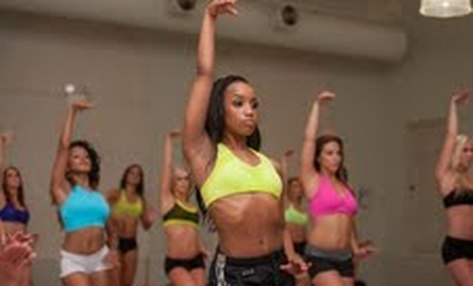
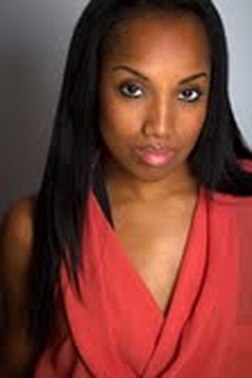
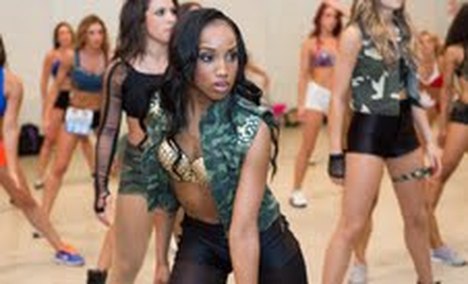
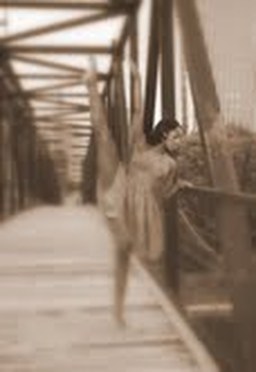
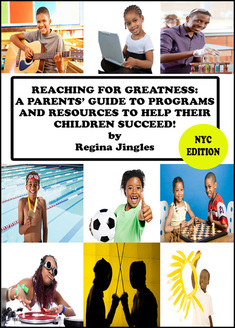
 RSS Feed
RSS Feed